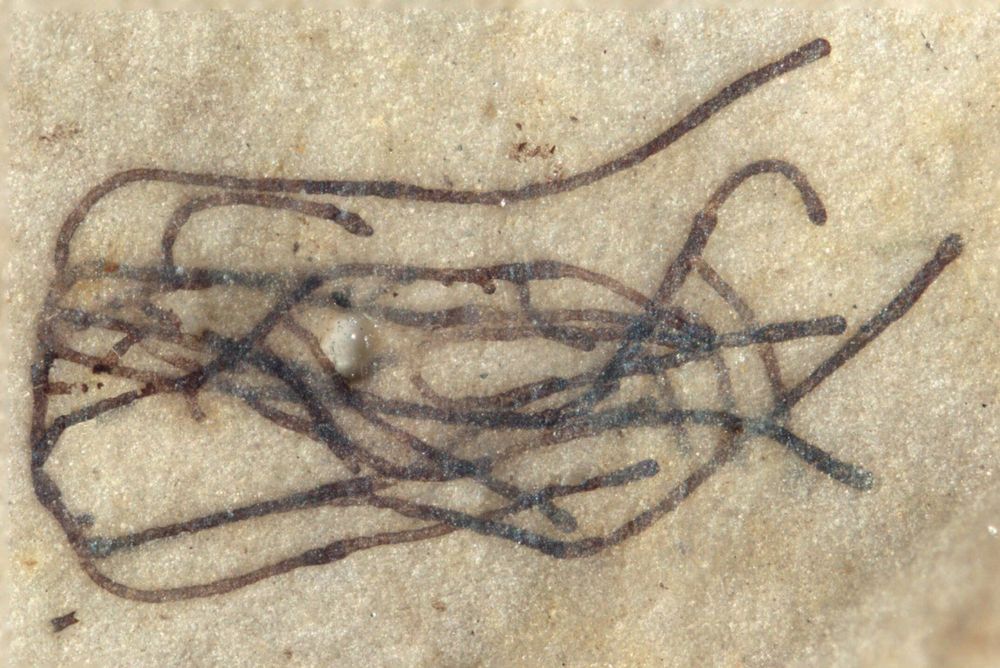Virginia Tech paleontologists have made a remarkable discovery in China: 1 billion-year-old micro-fossils of green seaweeds that could be related to the ancestor of the earliest land plants and trees that first developed 450 million years ago.
The micro–fossil seaweeds—a form of algae known as Proterocladus antiquus—are barely visible to the naked eyed at 2 millimeters in length, or roughly the size of a typical flea. Professor Shuhai Xiao said the fossils are the oldest green seaweeds ever found. They were imprinted in rock taken from an area of dry land—formerly ocean—near the city of Dalian in the Liaoning Province of northern China. Previously, the earliest convincing fossil record of green seaweeds were found in rock dated at roughly 800 million years old.
The findings—led by Xiao and Qing Tang, a post-doctoral researcher, both in the Department of Geosciences, part of the Virginia Tech College of Science—are featured in the latest issue of Nature Ecology & Evolution (link not active until embargo lifts). “These new fossils suggest that green seaweeds were important players in the ocean long before their land-plant descendants moved and took control of dry land,” Xiao said.
